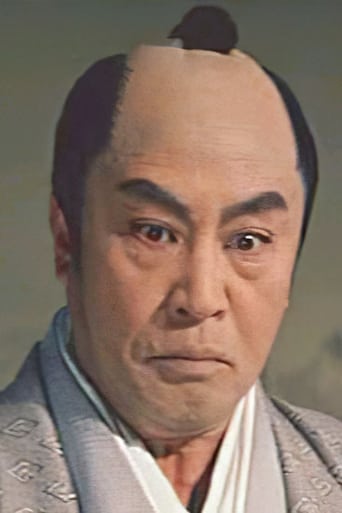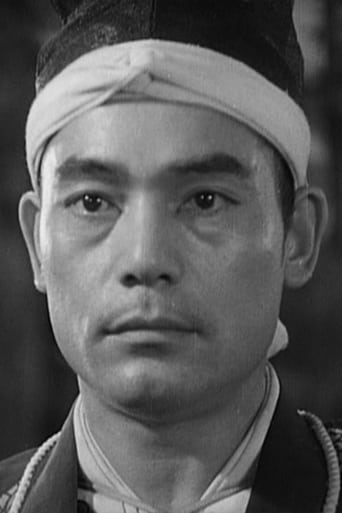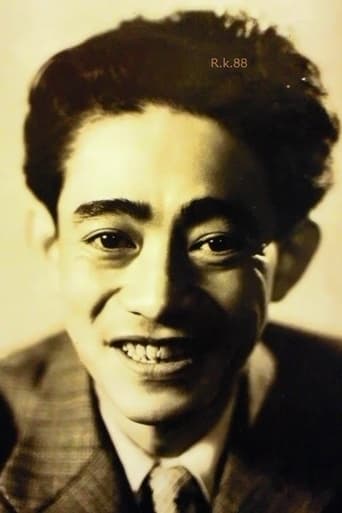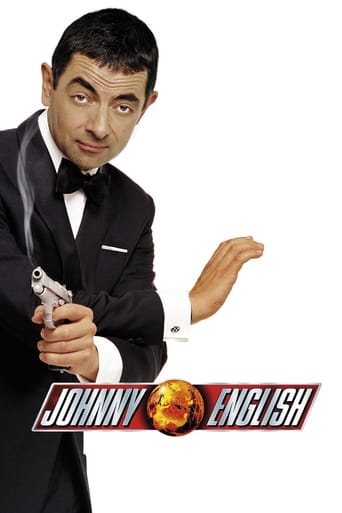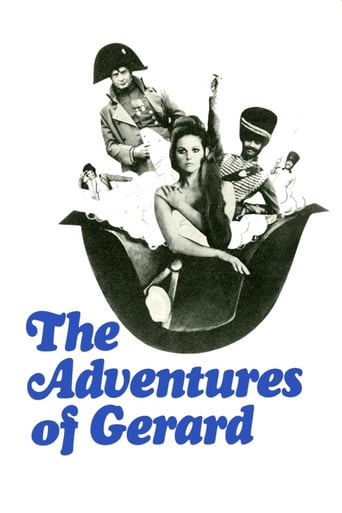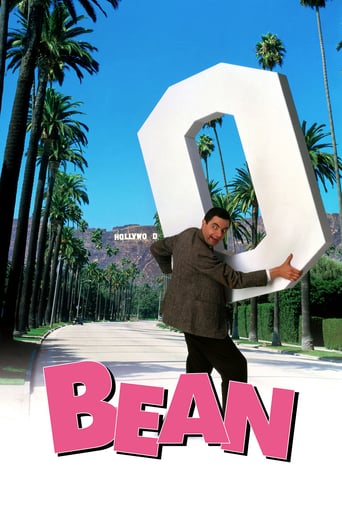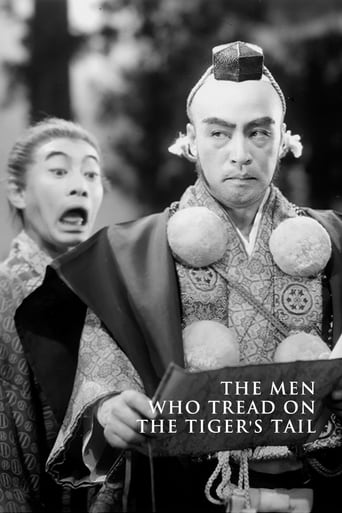
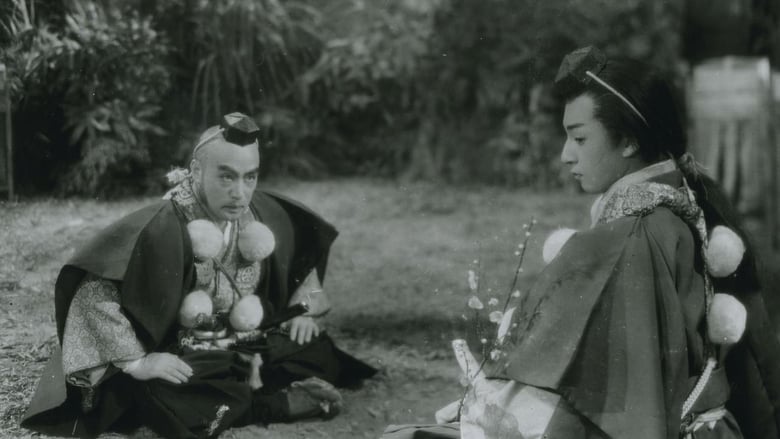
The Men Who Tread on the Tiger's Tail (1952)
Yoshitsune Minamoto, disguised with his retinue as monks, must make do with a comical porter as their guide through hostile territory en route to safety.
Watch Trailer
Cast


Similar titles
Reviews
Sadly Over-hyped
Most undeservingly overhyped movie of all time??
n my opinion it was a great movie with some interesting elements, even though having some plot holes and the ending probably was just too messy and crammed together, but still fun to watch and not your casual movie that is similar to all other ones.
This is a coming of age storyline that you've seen in one form or another for decades. It takes a truly unique voice to make yet another one worth watching.
I chose to watch this on the way home from a trip where Japanese heritage was central. I have saved this early Kurosawa for such a special occasion, knowing that it would be heavily stylized. I thought that would detract from the effect; surely that is what most commentors say. Cinematically, this has the essential Kurosawa: layered staging, profound cosmic forces testing human resources and strong character extremes.The central character is disowned royalty, determined to set things right. We see little of him, and not even his face until things are nearly over.I believe that it is Kurosawa's intention that he be the watcher and motivator both. As our on screen surrogate, this places us as both the watcher and the governing truths. It is a very clever reversal of the tradition, strong even then and even in Japan. The reversal is overt: he/we displace a comic porter, a simpleton that in a slightly less modern story would be the watcher. He does watch, but as the thing evolves, he becomes more and more a featured act. Coming at the beginning of Kurosawa's career, it is tempting to think of this as paired with "Ran," the fool of the beginning to the King Lear of the end. This fool is not wise, but he is present in a way that no one else is, allowing us to carry the film.The "film within" in this case is an impromptu prospectus for a rebuilt temple. I know of no more dramatically effective sequence than this, witnessed by an honorable man who takes the blessing seriously, and a foppish villain who creeps around during the speech. These are the fundamentals. As time would go, he could work with something better than a two-layered sound stage, and more complex narratives than this simple vignette. But I think the soul and sound of this is every bit as good as his best.Ted's Evaluation -- 3 of 3: Worth watching.
Perhaps it was too ambitious of me to sample one of Akira Kurosawa's earliest pictures, considering my extremely limited experience with his work {this would make only my fourth viewing from the director}. Often, delving into a well-known filmmaker's more obscure works is a job primarily for the aficionados and the completists, as they possess the knowledge to properly appreciate each film's importance in the development of the director's skills as an artist. Then again, perhaps being in the dark about Kurosawa's favourite themes and techniques gives me an opportunity to judge the film purely on its own individual merits, as though I'd been watching back in 1945. If this is the case, then I'm afraid that my assessment isn't entirely positive. 'Men Who Tread on the Tiger's Tail (1945)' shows plenty of promise on occasion, but that it was filmed on a shoestring budget is instantly recognisable, and every technique in Kurosawa's film-making book seems so utterly workmanlike and uninspired that you can see where this film is going from the outset.The film was adapted from an 1840 play, "Kanjinchō," by Gohei Namiki, which was itself based on the Noh play "Ataka," from an unknown playwright. Indeed, the film itself feels exactly like a play, unfolding almost entirely in four separate locations, decorated like simple stage sets, with actors delivering their lines as Kurosawa's camera idly sits around and watches. As opposed to films like Sidney Lumet's '12 Angry Men (1957),' which undoubtedly derived strength from their likeness to theatre, 'Men Who Tread on the Tiger's Tail' simply appears static, such that the narrative feels hardly to be moving along at all. This makes the brief 60 minute running-time seem much longer, and yet, paradoxically, the ill-developed story also feels truncated and incomplete. But there are strengths, of course: Kurosawa is able to develop some solid suspense in the battle-of-wills between Benkei (Denjirô Ôkôchi) and Togashi (Susumu Fujita), commander of the border guards. Takeo Ito also photographs some nice scenery, particularly the final shot of the Sun over the Japanese wilderness.At least as far as the film's performances are concerned, Kurosawa's unevenness somehow works as a positive. Whereas every other character is relatively somber, excepting the occasional eruption of jolly laughter, the rubber-faced Porter (Kenichi Enomoto) positively exudes an extraordinary nervous energy. His hilariously-annoying cackle, exaggerated facial expressions and wide-eyed double-takes are at odds with everything else in the tone of Kurosawa's film, and yet his presence is indispensable. Denjirô Ôkôchi displays plenty of charisma as the apparent leader of the "monks," and, thankfully, the English subtitles meant that I didn't have to decipher his consistently-mumbled lines. At first, I found Kurosawa's choice of music a selection of surprisingly merry and adventurous ballads to be intrusive and out-of-place, but then I recognised their derivation from Western cinema, particularly the films of John Ford {whom Kurosawa ardently admired}, and I was better able to appreciate the tone that was being attempted. 'Men Who Tread on the Tiger's Tail' is certainly the weakest of the director's films I've seen to date, but might nonetheless warrant a rewatch somewhere down the track, when I'll know better.
Men Who Tread on the Tiger's Tail, The (1945) ** (out of 4) Early film from Akira Kurosawa about a fugitive Lord and his followers who must travel through a forest trying to avoid capture. Apparently this is based on some Japanese fable and Kurosawa does a good job at creating a fairy tale like atmosphere but the story pretty much left me uninvolved. I could never get caught up in the story, which seemed to bounce around quite a bit considering the film only runs sixty-minutes. I really wasn't taken with any of the performances either and the comic relief from the "coward" seemed pretty forced to me. The scenery was very nice and you can still see the talent within Kurosawa.
Very well done, but "The Men Who Step On The Tiger's Tale" feels like the first act of a larger film, not a complete film in itself.It follows a party of samurai escorting a fugitive prince through enemy territory, accompanied by a clueless servant (echoing Kurosawa's later masterpiece, "The Hidden Fortress"). They come to a border crossing, are interrogated by the magistrate, convince him that they are actually a party of monks, & are allowed to proceed. Shortly after, a group of soldiers catch up to them & offer them a drink & apologies from the magistrate. They drink, get quite drunk, then the next thing we see is the servant waking up, deserted by both groups.The end.I had to check my copy of the film, log on here to check the running time & read several reviews to make sure that there wasn't some kind of mistake. No mistake, that's all there is. Were the samurai taken into custody while they were drunk? Were they spirits? Was the servant hallucinating or dreaming? I'm sure there's a reason for the film ending so abruptly, but it was ultimately a very unsatisfying experience. At the point it ended, I was ready for another encounter with danger, then perhaps another, followed by the party's escape, or capture & subsequent death. But no, it's the end.Recommended for Kurosawa fans & those interested in Kabuki theatre only.


